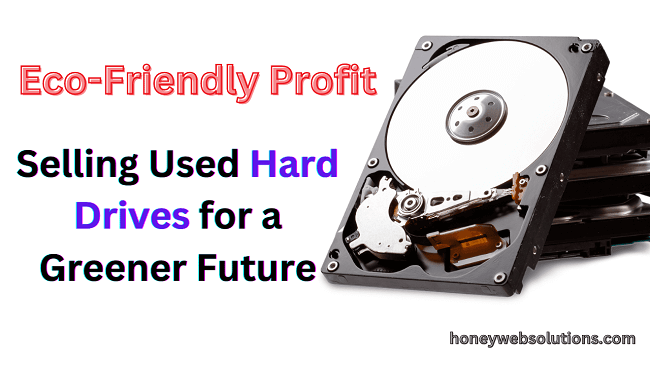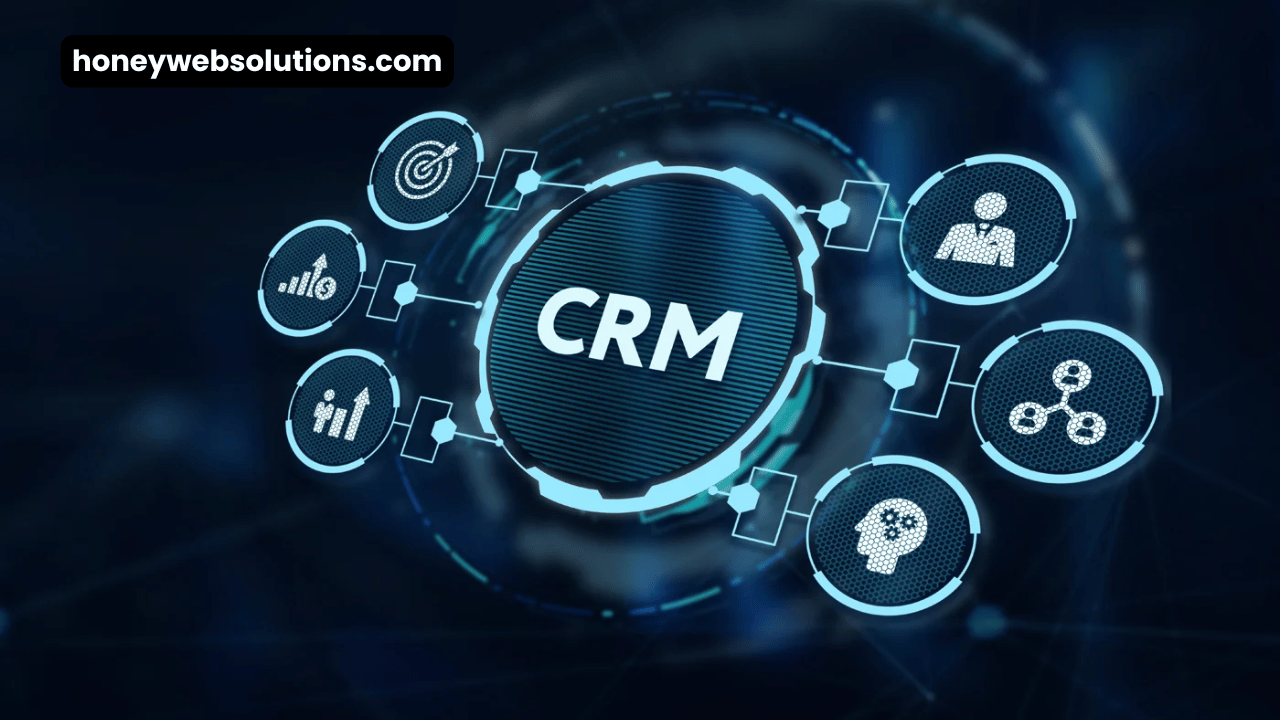
Eco-Friendly Profit: Selling Used Hard Drives for a Greener Future
The world is a big place. It’s also getting smaller. Globally speaking, the internet has shrunk the distance between countries and cultures and has made it easier to share information with people all over the globe. This means that we’re in greater need of efficient ways to get rid of old electronic equipment like old hard drives, so they don’t end up in landfills where they’ll be buried under tons of other waste materials that take forever to decompose—or, worse yet, leak toxins into our water supplies!
Fortunately, there are plenty of ways you can recycle your used electronic devices responsibly—and even earn some money while doing so! In this post, I’ll show you how easy it is to find buyers for old hard drives and make some greenbacks at the same time.
Hard Drive Recycling for a Greener Future
Table of Contents
Hard drive recycling is a good idea for the environment, and it can also be good for your wallet. If you have old hard drives lying around, there are companies that will pay for them, so they can recycle them. This reduces the amount of electronic waste in landfills and keeps harmful toxins out of our water supply. The money from selling your old hard drives can help pay for more eco-friendly products like solar panels or wind turbines, which will save you even more money in the long run!
The Benefits of Hard Drive Recycling
Hard drive recycling is the process of salvaging used data storage devices and repurposing them for reuse. It can be a great way to help the environment, save money and make money at the same time.
Hard drives contain toxic materials that can harm both humans and wildlife if not disposed of properly. If you don’t recycle your old hard drives, they will end up in landfills, where they will remain for decades until they eventually break down into smaller pieces that will take even longer to decompose naturally. This means that any data stored on those hard drives would be lost forever – not good! Recycling also keeps them out of landfills, where they might end up being accidentally crushed by machinery or broken into smaller pieces by scavengers looking for scrap metal (or just curious kids).
Reduce, Reuse, Recycle Your Hard Drives
In order to reduce the amount of hard drives being thrown away, it’s important to reuse and recycle them. The first step is identifying what kind of hard drive you have, then deciding whether it can be reused.
- If your computer uses an IDE (Integrated Drive Electronics) or SATA (Serial ATA) connection, then chances are good that there will be plenty of people who would like to buy your old one from you. You’ll need to check if they come with any software installed on them before selling them, though!
- If this isn’t an option for whatever reason, try looking into local organizations like Goodwill or Habitat For Humanity, who may accept donations from individuals in exchange for tax credits or discounts on future purchases made through their stores, respectively.
- If your hard drive uses SCSI or Fibre Channel connections, then it’s probably not worth trying to sell. However, if you have an old SCSI or Fibre Channel drive lying around, it might be worth giving away as a freebie with your next computer purchase (for example at Best Buy).
Why is Recycling a Good Idea?
Recycling is the act of converting waste materials into new products. This process helps reduce the amount of waste in landfills, and it also reduces the amount of toxic chemicals released into the environment. Recycling also reduces the amount of energy required to produce new hard drives because less raw material needs to be mined or drilled for each one made.
Hard drives are one of the most common electronic devices found in homes, businesses and schools today. They are used to store many types of data including music files, videos, photographs and documents.
How to Recycle Your Hard Drive?
To recycle your hard drive and make a difference for the planet, you must first find a recycling center. Most cities have one or more locations where you can take your electronics for safe disposal. You can also look online to see if there are any companies in your area that offer this service as well.
Once you’ve found a place to take your hard drive (or other electronic waste), it’s time to prepare it for recycling by removing any personal information from the device and wrapping it in anti-static packaging so no dust or particles get into the computer during shipping or transport between facilities.
Remember: If you don’t want to sell your used hard drive but still want to help the environment by recycling e-waste responsibly, consider donating old hard drives instead!
How Much Can I Earn by Selling My Used Hard Drives?
The price you can expect to receive for your used hard drives depends on several factors. The most important of these is the condition of your hard drive and its age. If you’re selling a new, unused hard drive, then you can expect to receive around $1 per gigabyte (GB). However, if your hard drive is old or damaged in some way, even if it still works, then it will only be worth about 10% of this amount.
The second factor affecting the price of your used hard drives is where they were made: different countries have different standards for quality control and environmental regulations around electronics manufacturing, which affects how much value their products have once they’ve been discarded by consumers like yourself! For example: Western European countries tend to produce higher quality electronics than Asian ones; therefore, Western European electronics will generally fetch higher prices when sold on secondary markets such as eBay or Amazon Marketplace.
The third factor affecting the price of your used hard drives is where they are sold: if you sell them locally, then you can expect to receive a much lower price than if you were to sell them online. This is because it costs less for buyers to inspect and test items in person than it does for them to do so over the internet (they can’t see how many gigabytes your hard drive contains from just looking at an image on their screen).
Learn How to Recycle Your Old Hard Drives
Recycling your old hard drives will reduce their impact on the environment, while helping you make some extra cash.
Hard drives contain toxic chemicals that can leak into the environment when they’re not recycled properly. When you recycle an old hard drive, it’s broken down into its component parts and then sold as raw materials to be used in other products. This saves energy and prevents pollution from manufacturing new hard drives, which are often made with precious metals such as gold and copper (but not silver). In addition to reducing pollution from mining these valuable materials all over again, recycling also reduces pollution caused by burning fossil fuels during transportation of raw materials around the world, and let’s face it: we all want our planet to stay green!
The best part? Recycled electronics like laptops or cell phones have higher value than brand-new ones because they’re already assembled, you just need a battery pack installed before using them yourself!
Conclusion
As you can see, there are many benefits to hard drive recycling. From reducing the amount of waste that goes into landfills and oceans to earning some extra cash for your old computer equipment, it’s clear that this practice is worth doing even if it weren’t good for the environment.











